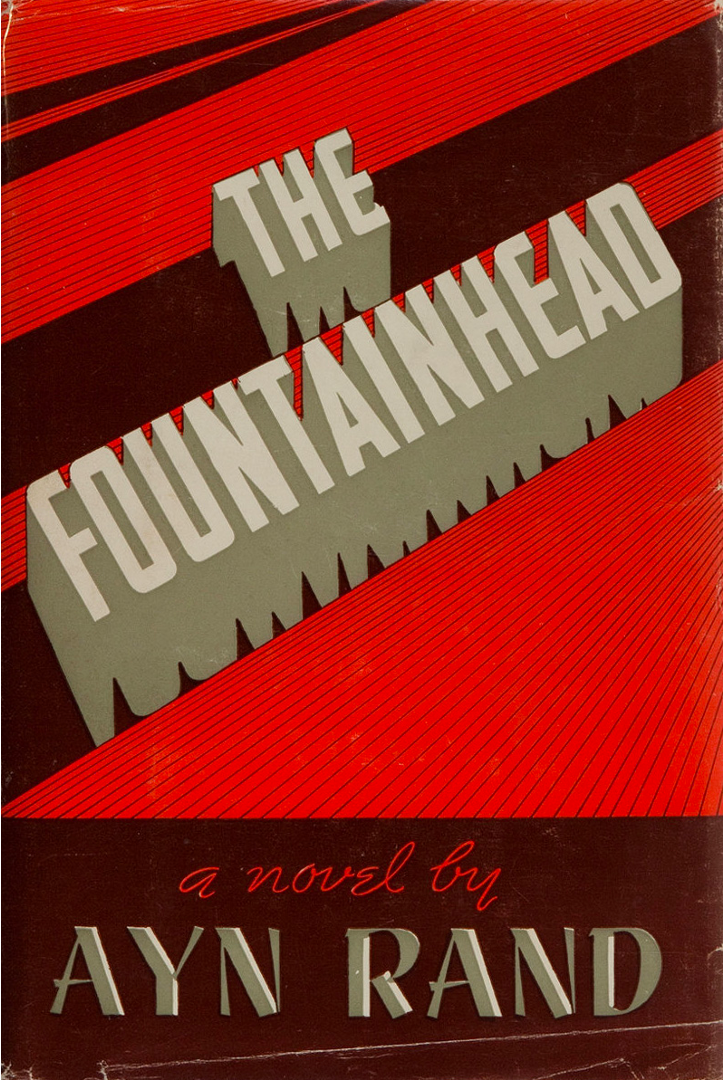1. The Fountainhead: Book Review

We have no control over most things. Childhood is shaped chiefly by where one is born, the family, the locality, and school. I was born into a lower-middle-class family in Meerut. However, my parents were educated, and we had our own three-storey house. I am the eldest of four children, followed by my sister and two brothers. My grandmother also lived with us. Growing up in a small town, I never imagined anything beyond Meerut. But even as a child, books fascinated me. Meerut is famous for its printing of Hindi detective novels, known as Jasoosi Upanyas. I would somehow find one and read it.
I was introduced to English books at Pantnagar University, where I graduated with a degree in mechanical engineering. Other students in the hostel, from better schools and families, used to own novels, and it was easy to borrow one. The first books I read were novels by James Hadley Chase and Harold Robbins. Their gripping plots and mysteries captivated me. My father passed away in June 1979, and to survive the sudden loss, I felt the need for a book. I walked to Abu Lane with my brother. There was a book shop a few yards from the Nishat Cinema. I purchased Ayn Rand’s The Fountainhead, as recommended by the shop owner.
‘The Fountainhead’ follows the journey of Howard Roark, an idealistic and innovative architect. The novel begins with Roark being expelled from architectural school for refusing to conform to traditional architectural styles. Roark struggles to find work and is often rejected due to his avant-garde designs. He takes a job with Henry Cameron, an older architect who shares his vision but struggles to keep pace with changing trends.
In contrast, Peter Keating, a classmate of Roark, succeeds by pandering to societal expectations. He eventually becomes a partner at the prestigious architectural firm. Roark works independently, designing a housing project showcasing his modernist ideals. After facing numerous setbacks, he finally gains recognition for his talents.
Roark’s uncompromising values lead him into conflict with critics who favour traditional architecture. His battle with conformity becomes central to the story, manifesting through the various responses of characters to his work. Roark’s most controversial act occurs when he sets dynamite to a partially completed housing project that is altered against his wishes, asserting his belief in artistic integrity over compromise. The story ends with Roark finally achieving success on his terms, symbolising the triumph of individualism over collectivism.
Roark represents the ideal of a man who refuses to conform to societal expectations or compromise his artistic and architectural vision. The novel champions self-reliance, innovative thinking, and the courage to stand firm against external pressures. It marked a turning point in my life—one that inspired and liberated me from what I now call the ‘Meerut mould’, allowing me to step into my own identity. I have internalised the words of Roark:
“It’s easy to run to others. It’s so hard to stand on one’s record. You can fake virtue for an audience. You can’t fake it in your own eyes. Your ego is the strictest judge. They run from it. They spent their lives running.” (Part 4, chapter 11, p. 606)
The Fountainhead dares you to live a life of your own making. Sometimes, the most radical act is to stand your ground and be unapologetically yourself.

Sir, I read the FountainHead probably a few years later. I still remember it as one of the most inspiring books I’ve read. Thanks for refreshing the memory.
What a great book to have read early in your adult life Prof Tiwari! It sounds like it was quite an inspirational contribution to your fantastic journey!
Dear Sir, Thank you for sharing such a personal and profound reflection. Your journey from the bylanes of Meerut to discovering your true self through literature—especially The Fountainhead—is deeply inspiring. The way you articulated the transition from inherited circumstances to chosen identity resonates with anyone who has ever struggled to break free from their comfort zone or social conditioning.
Your honesty and courage to evolve, both intellectually and emotionally, remind us that books don’t just entertain—they liberate. This post is not just a story of reading a novel, but of reclaiming one’s agency. Truly moved by your words: “The Fountainhead dares you to live a life of your own making.” Thank you again for being a continuous source of inspiration to me.
Sir looks like I also read Fountainhead as around the same time as you. Still have that copy. Its a recommended read for my children. It had a very profound effect on my whole life…I am 67 now….I wont say its a novel….Its a Bible for free thinkers.